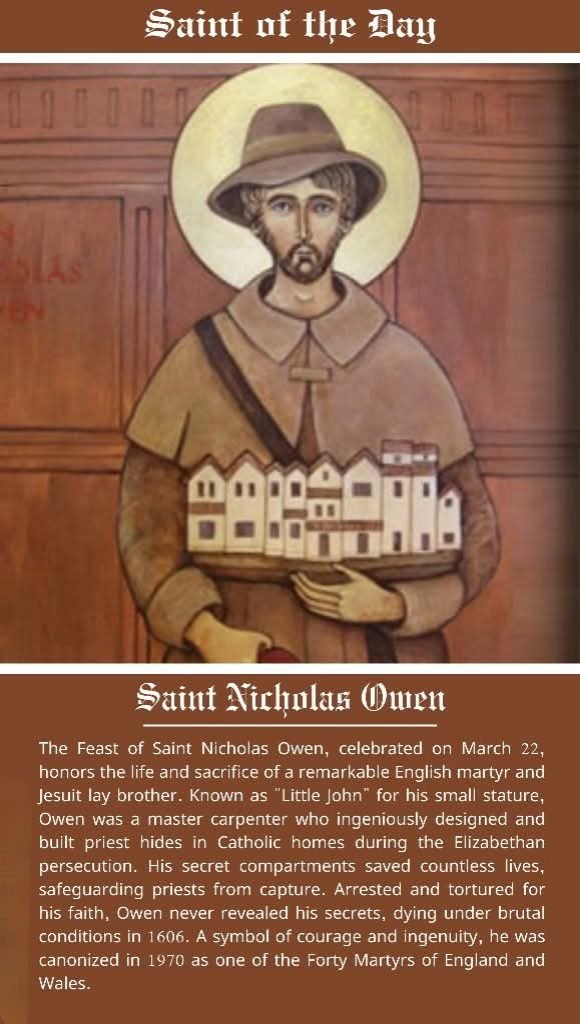FEAST OF SAINT LEA OF ROME
FEAST DAY – 22nd MARCH

Saint Lea (died c. 383) is a fourth century saint in the Roman Catholic Church, based on the authority of Saint Jerome. Lea of Rome is known only through the testimony of her beloved friend, the learned Saint Jerome. Jerome, a scholarly monk best known for his Latin translation of the Bible (the Vulgate), is the only source of information on St. Lea, whose biographical details are unknown.
A noblewoman of Rome, born into wealth and privilege, she was a contemporary of Jerome. However, soon after her marriage she was widowed and was left very sound financially. Instead of retiring as a wealthy widow, however, she joined a convent of consecrated virgins in the city, shedding all her money and social standing.
In later years, she was named the prioress of the convent. Saint Lea supported the house run by Saint Marcella, working as a menial servant, and later served as the group’s superior. It appears that she died in 384 while she was reciting Psalm 73 (alongside St. Jerome). In a letter relaying her death to others within the city of Rome, St. Jerome writes to St. Marcella that St. Lea, a woman of austerity, obedience and remarkable penances had died.
He described her as “blessed,” emphasizing the woman’s virtues as being worthy of heaven. St. Jerome provides no biography for Lea, for he assumes that Marcella knows Lea, and concentrates instead upon her virtues. He mentions about the fate of St. Lea in comparison with that of a consul who had recently died.
“Who will praise the blessed Lea as she deserves? She renounced painting her face and adorning her head with shining pearls. She exchanged her rich attire for sackcloth, and ceased to command others in order to obey all. She dwelt in a corner with a few bits of furniture; she spent her nights in prayer, and instructed her companions through her example rather than through protests and speeches.

And she looked forward to her arrival in heaven in order to receive her recompense for the virtues which she practiced on earth. Jerome draws a parallel with the parable of Lazarus and Dives: “So it is that thence forth she enjoyed perfect happiness. From Abraham’s bosom, where she resides with Lazarus, she sees our consul who was once decked out in purple, now vested in a shameful robe, vainly begging for a drop of water to quench his thirst.
Although he went up to the capital to the plaudits of the people, and his death occasioned widespread grief, it is futile for the wife to assert that he has gone to heaven and possesses a great mansion there. The fact is that he is plunged into the darkness outside, whereas Lea who was willing to be considered a fool on earth, has been received into the house of the Father, at the wedding feast of the Lamb.
“Hence, I tearfully beg you to refrain from seeking the favors of the world and to renounce all that is carnal. It is impossible to follow both the world and Jesus. Let us live a life of renunciation, for our bodies will soon be dust and nothing else will last any longer.”
St. Jerome’s use of the adjective “blessed” is taken as sufficient evidence for Lea’s veneration by the Roman Catholic Church, where her feast day is March 22. The name Lea is likely a derivation of Leah coming from a Hebrew word meaning “weary”; or from a Chaldean name meaning “mistress” or “ruler” in Akkadian. In Genesis 29, Leah is seen as being Jacob’s first wife and the mother of seven of his children.
PRAYER
God our Father, Saint Lea received her reward in heaven for her obedience and austerity on earth. During this Lenten season, may we look to her example, exchanging our earthly vanity and pride for true service, true faith, and true obedience to the call of the Lord.
We make this humble prayer through Christ our Lord. Amen

Saint Lea of Rome, pray for us all.
++++++++++++++++++++++++++++++++++
ALSO CELEBRATED:

MEMORIAL OF ST. NICHOLAS OWEN: THE UNDERGROUND SAINT – 22 MARCH
The story of St. Nicholas Owen stands as a testament to courage, ingenuity, and unwavering faith. Born in England during the late 16th century, Owen became a symbol of resilience within a community facing persecution and violence. As we delve into his life, we discover a man whose actions not only changed lives in his time but also continue to inspire us today.
Nicholas Owen, a simple carpenter by trade, found his calling during a period when Catholics were hunted as outlaws. Under Queen Elizabeth I and later King James I, anti-Catholic sentiment soared, leading to harsh penalties for those who practiced the faith. In this context, Owen’s exceptional skills were vital; he became known for constructing secret “priest holes”—ingeniously hidden compartments within the homes of Catholic sympathisers. These cleverly designed spaces provided sanctuary for clergy, allowing Mass to be celebrated discreetly and sacraments to be administered amid a climate of fear.

Despite his efforts to safeguard the Church’s sacramental life, Owen’s fate took a dark turn. In 1606, he was arrested and subjected to horrific torture, aimed at coercing him into revealing the locations of other priests and their hiding places. Yet Owen remained steadfast, embodying the very essence of martyrdom. He endured unimaginable suffering with a silent dignity, never compromising his faith or betraying his fellow Catholics. His ultimate martyrdom solidified his legacy, and he was beatified in 1929 and canonized in 1970 by Pope Paul VI.
The influence of St. Nicholas Owen transcends the historical context of his life. His legacy speaks to the necessity of creativity in the face of adversity and the power of steadfast belief. In today’s world, where faith can often be challenged or marginalised, Owen’s story invites us to reflect: How can we embody that same courage? How can we create spaces—both physical and spiritual—that support and nurture our faith communities?

Owen’s life prompts us to consider how we respond to persecution, whether subtle or overt. Are we equipped to defend our beliefs? St. Nicholas Owen’s unwavering faith reminds us that standing firm in one’s convictions is imperative, even in the face of opposition. His craftsmanship was not simply woodwork; it was an act of love and dedication, reminding us that every action, no matter how small, can echo through eternity in the service of God. As we honour St. Nicholas Owen, let us turn our hearts in prayer, seeking his intercession as we strive to live out our faith boldly.
PRAYER
O St. Nicholas Owen, steadfast protector of the faith, we ask for your intercession as we navigate the complexities of our modern world. Inspire us with your courage to uphold our beliefs amidst challenges. May we, like you, create spaces of refuge where love and faith flourish. Strengthen our resolve to support one another in our spiritual journeys and help us be fearless advocates for our Catholic faith. Amen







